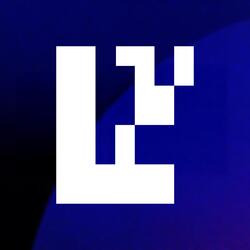SEC officially approves Spot Bitcoin ETF
The Securities and Exchange Commission has finally approved multiple-spot Bitcoin ETFs, following a spectacular false start on January 9.
As of January 10, 9:10 p.m. UTC, the approved document’s URL on the SEC website is still displaying an Error 404.
As of January 10, 9:30 p.m. UTC, the SEC’s approval of spot Bitcoin ETFs is documented in a file that may be accessed via a separate link on the commission’s website.
Within a day after a fake statement on the SEC’s official Twitter account caused chaos in the markets, the U.S. Securities and Exchange Commission formally authorised the first regulated spot Bitcoin, BTC, $46,129, and $45,929 exchange-traded funds (ETFs) in the country.
The securities regulator granted the 19b-4 applications on January 10th, which were submitted by ARK 21Shares, Invesco Galaxy, VanEck, WisdomTree, Fidelity, Valkyrie, BlackRock, Grayscale, Bitwise, Hashdex, and Franklin Templeton. These approvals allowed for the listing and trading of a spot Bitcoin ETF on the aforementioned exchanges. The file was downloadable via the SEC website briefly, after an “Error 404” warning, it became accessible through another link.

With no need to purchase Bitcoin or concern about self-custody, investors will now have direct access to the price of the cryptocurrency through the first regulated exchange-traded product in the United States, thanks to this historic approval. Investors will purchase shares in exchange-traded funds (ETFs) with Bitcoin as the underlying asset.

Before the website crashed, an SEC page displaying the spot approval of a Bitcoin ETF was available. U.S. Securities and Exchange Commission
It was unclear if the “Error 404” indicating that the SEC had accepted 11 spot Bitcoin ETF submissions came from an excessive amount of site traffic or from the commission removing the document. The commission might not have planned to disclose the permission paperwork at the time it did, but ETF expert James Seyffart said on X (previously Twitter) that it will probably repost it nevertheless.

Bitcoin ETFs Approved After 10 Years of SEC Rejections and Delays
After Cameron and Tyler Winklevoss originally sought to establish the Winklevoss Bitcoin Trust in 2013, the ETF was approved more than ten years later. Due to worries about possible fraud and market manipulation, the SEC has continuously rejected all proposals for spot Bitcoin ETFs.
But when Grayscale prevailed in a legal battle in August 2023, the SEC was compelled to reevaluate its stance. Grayscale had applied to change its Grayscale Bitcoin Trust into a spot Bitcoin ETF, but the SEC had rejected it.
After receiving authorization, the industry eagerly watches for spot Bitcoin ETFs to begin trading.
Global fund manager VanEck projects that about $2.4 billion will flow into spot Bitcoin products in the first quarter of 2024. Also, Galaxy Research head of digital Alex Thorn has calculated that spot Bitcoin ETF inflows might exceed $14 billion in the first year.
Ten issuers submitted final modified S-1 and S-3 forms on January 8, revealing planned fees for their Bitcoin ETFs.
Up until the fund’s assets under management (AUM) reach $5 billion, BlackRock, the biggest asset manager in the world, will charge 0.2% in fees. Bitwise is next in line at 0.24%, while VanEck and Ark 21Shares are a little behind at 0.25%.
Ark 21 Shares will waive fees during the initial six months or until the product surpasses $1 billion AUM.
At 1.5%, Grayscale is now the most expensive Bitcoin ETF product available to potential investors.






























































































































